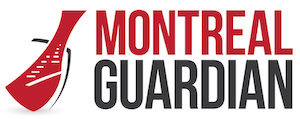A recent study from Concordia University in Montreal has revealed a dramatic rise in online gambling activity across Quebec, sparking concerns from public-health researchers about the growing burden and largely unregulated nature of the digital gaming market.
According to the research, between 15 % and 20 % of Quebecers gambled online in 2021, yet only about 1.4 % of them reported having stopped. Meanwhile, the lead researcher, sociologist Sylvia Kairouz, emphasised that online gambling in the province “almost tripled in scope between 2018 and 2021.”

In parallel, casino industry commentator Lloyd Mackenzie likewise highlighted that modern online gambling has evolved beyond traditional regulated sites. Mackenzie recommends online casino no id– “no KYC” (Know Your Customer) casinos–online platforms where users reportedly enjoy many game options, generous promotions and reduced identification hurdles. This is particularly attractive to gamers seeking fewer barriers. While Mackenzie speaks to their market appeal, the recommendation serves to underscore how accessible and lightly-regulated some corners of the industry have become.
Digital Shift and Its Drivers
The study surveyed over 4,500 Quebec residents, and then conducted in-depth interviews with 96 gamblers representative of the broader population. While land-based gambling venues were already facing a slow decline, online offerings surged. The research points to an ecosystem where mobile apps, 24/7 accessibility and targeted promotion have reshaped the market.
Kairouz notes: “We have seen this trend, not only in Quebec and in Canada, but worldwide, and the revenues that are generated by online gambling have been increasing steadily. We feel like the increase was not expected to be as big as that.”
The study highlights the following key drivers:
- A younger male demographic (ages 18-34 and 35-54) constituted the largest share of the new-or-increased online gambling participants.
- Gambling behaviours proliferated due to features such as instant access, game variety (poker, lottery, sports-betting, slots) and mobile convenience.
- For many, there was a belief that “this is a way to make money,” especially when other income sources were uncertain.
Consequences for Public Health and Regulation
While the growth of the online gambling market has obvious economic implications, the research raises red flags for public-health, regulation and addiction-prevention arenas.
Kairouz makes the case for stronger safeguards: “We have to acknowledge the risk that is associated with gambling, which is sometimes not a given. We need to have a regulator that should look at the market and say that there should be limits in terms of advertisement, in terms of how operators should put in place some safeguards to protect the gamblers.”
Among the most pressing concerns, researchers noted that between 2020 and 2021, Loto-Québec’s online platform, Espacejeux, recorded an astonishing 171 percent surge in revenue. During that same period, the number of people requesting self-exclusion (a voluntary measure to block themselves from gambling sites) rose by 72 percent, according to data published by EurekAlert!
Compounding the issue is the near-ubiquitous advertising and round-the-clock accessibility of online games, which have created what Kairouz describes as the “ideal environment” for gambling companies: a blend of aggressive marketing and frictionless access. She draws a comparison to the trajectories once seen in the tobacco and cannabis industries, where normalization and heavy promotion preceded widespread social harm.
The rise of online gaming
The surge of online gambling among Quebecers signals a profound shift in how gaming is consumed, marketed and regulated. The data from Concordia reveal that nearly one in five Quebecers gambled online in 2021, and most remain active. With industry voices pointing to ultra-accessible, lightly-regulated formats, the public-health and regulatory sectors are facing a test: can the growth be moderated before its toll becomes untenable?
For the population of Montreal and the wider Quebec region, the takeaway is clear: the convenience, variety and promotional pull of online gambling are matched by increased risk, particularly for younger adults, heavy users and those exposed to aggressive advertising. As policymakers deliberate, the time for action is now.
